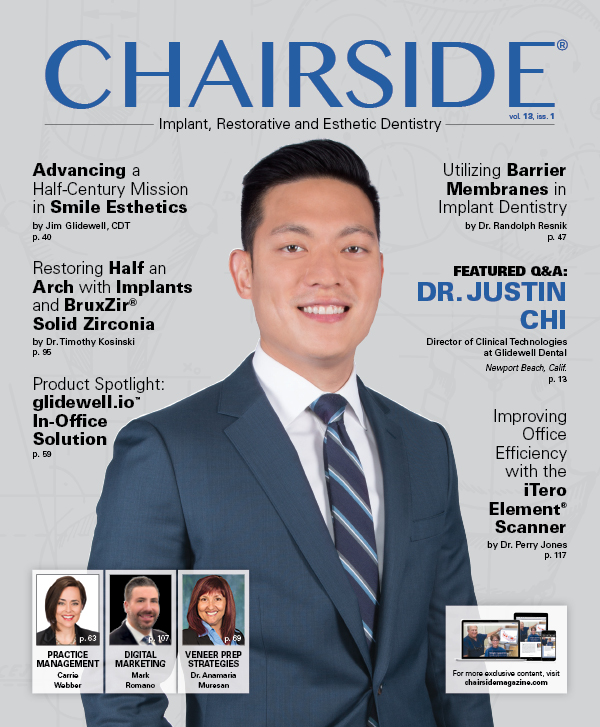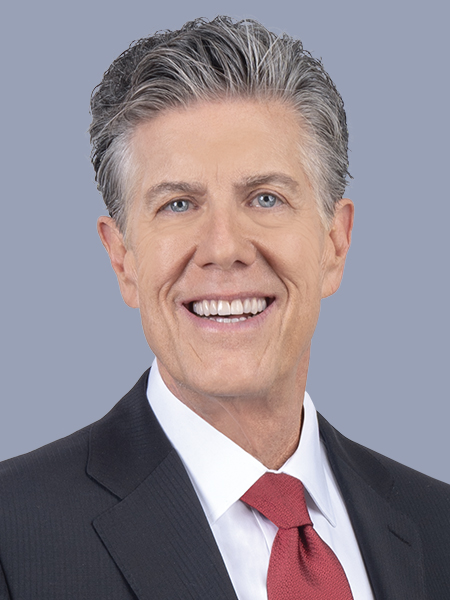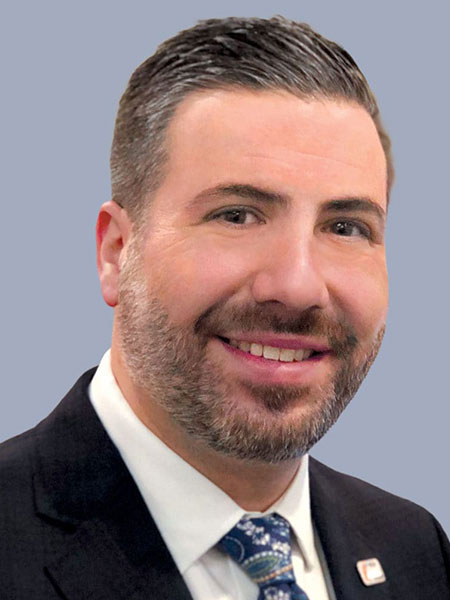Interview with Mark Romano – Digital Marketing for Your Dental Practice
Mark Romano is cofounder and co-owner of Now Media Group, a marketing firm based in San Diego that promotes dental practice growth using web design, email campaigns, content curation, social media and other marketing strategies. As a dependable business partner, Romano and his team at Now Media Group have helped many in the dental profession increase patient visibility and revenues, as well as remain relevant in the digital age. In this interview, he shares marketing insights that dentists can use to bolster their business.
DR. NEIL PARK: Mark, can you tell us a little bit about your company and the different services that you provide?
MARK ROMANO: Absolutely. Now Media Group has been around since 2009. We have a great team of about 25 employees, and we do everything regarding digital marketing for dental practices.
NP: And are you limited to dental practices?
MR: For the most part. I would say 95 percent of our client base is dental at this point. We have a strong footprint in dentistry — we understand dentistry, we understand marketing, and we are able to marry those elements into very successful campaigns and marketing programs for our clients.
NP: How did you get involved in working with dental practices?
MR: It all started with one. Way back when, our very first client just happened to be a dentist, and we put together some programs for him that were very successful, and one client turned into two, and two turned into 10, and it just snowballed from there. Things really took off about five years ago when we developed and forged a relationship with the Misch International Implant Institute.
NP: So a lot of your clients are focused on the implant side of dentistry?
MR: Yes. We work with general practitioners and specialists, but most of our clients have a strong focus on wanting to grow and expand upon the implant side of their businesses.
NP: Is there some special need that dentists have that makes marketing for dental practices different compared to other small businesses?
MR: It’s all about education. Dentists don’t sell a boxed-and-shipped product where patients are able to go and research it on their own and then make a purchasing decision. Instead, prospective patients need to educate themselves on what’s involved, what the process is like and if they’re a candidate for that particular dental procedure.
NP: Right — dental treatment is not a set product that you can compare from one office to another. What you’re really developing is trust.
MR: Every dental practice is different, so we really want to highlight the clients we work with. Our work is based on patient education — it’s based on highlighting the credentials, experience and technology that these practices offer. It’s about letting patients know they’re making the right decision.
Our work is based on patient education — it’s based on highlighting the credentials, experience and technology that these practices offer. It’s about letting patients know they’re making the right decision.
NP: And a lot of that now has to do with web presence. What are the essential features that every dental practice website should have?
MR: That’s a great question. So nowadays mobile is kind of the hot topic in website design. Your site needs to be mobile — not just mobile-friendly — so mobile design is what we’re doing right now. About 60 percent of the traffic that we’re seeing coming through these websites is from mobile devices, so we design for that. Of course, we also design the websites so that they’re compatible for the desktop user, but mobile is extremely important.
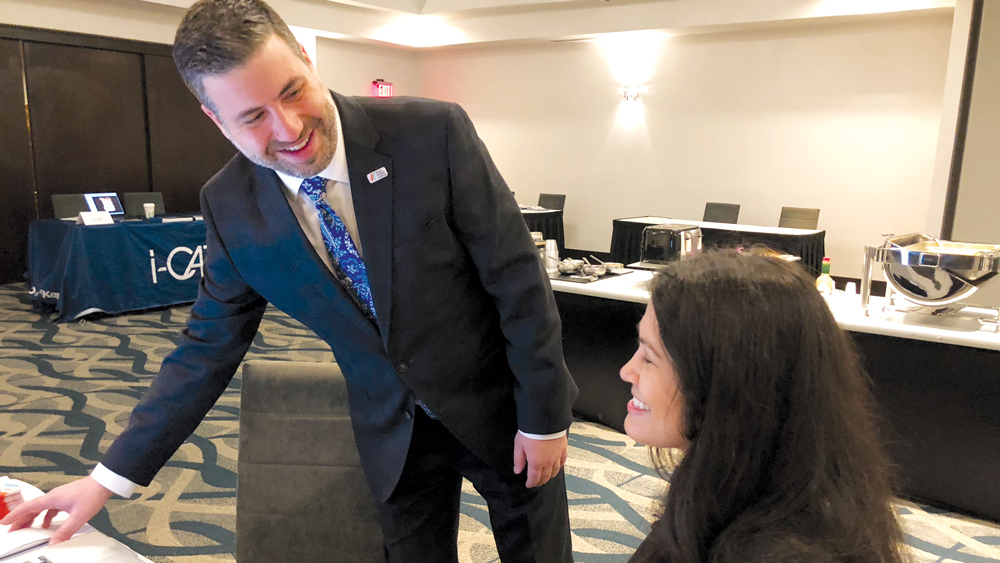
Mark Romano is cofounder and co-owner of Now Media Group, which promotes dental practice growth using digital marketing strategies.
NP: Specifically, what is it about a site that makes it mobile-friendly?
MR: The ability of the site to communicate with the device that’s trying to access it, whether it’s a cell phone or a tablet. The site can resize itself to fit properly on any device to keep the navigation, layout and user experience more consistent.
NP: And is there a difference in how long the viewer stays engaged with the site, mobile versus desktop?
MR: They’re going to the website to look for something specific — they’re looking for your phone number, they’re looking for your address or the contact form. They will spend a lot more time on the desktop when they’re able to have a full version of the site, where they’re able to read and learn and absorb all the content. Both mobile and desktop serve a purpose, but at the end of the day, the general idea is to make sure that you’re providing a great experience for your patients.
NP: And is it a different demographic that accesses the site with a mobile device compared to a desktop device?
MR: It’s the same. Initial research may start on a mobile device, but as you dig a little bit deeper and really come to the point where you’re going to make a decision to contact the practice or book an appointment, your research may continue on the desktop version of the website. So we need to make sure the experience is good all around.
NP: Are there things that you see in older websites or those that doctors have created themselves that you feel should be avoided?
MR: We’re still seeing a lot of websites that have not made that leap to mobile, so we’re correcting that and upgrading older websites to a mobile-first design. And we’re moving away from stock photography; we want to make sure that these websites are fully customized, so that they’re able to showcase the actual providers and the practices.
Patients are looking to familiarize themselves with doctors — who they are, their experience, their credentials. They are looking for what sets certain practices apart from others. We put a big emphasis on highlighting the work, so we want to see before-and-after photos and patient testimonials.
Patients are looking to familiarize themselves with doctors — who they are, their experience, their credentials. They are looking for what sets certain practices apart from others.
NP: How does a practice keep up with all these constant changes in digital marketing?
MR: There are a lot of great publications out there that you can subscribe to that can help you keep up with the latest trends in digital marketing. Most business owners and dentists I work with don’t have the time to research this independently, so they look to work with a firm like ours, where we’re able to communicate with these practices regularly, teach them the latest trends, describe what’s working and what can be improved upon, and implement those things into the practice.
NP: You mentioned that your firm’s clientele is almost exclusively dental practices — does that give you some insight other companies in this field would not have?
MR: What’s unique about my company is that we have a very strong understanding of marketing, the internet, social media and optimization, as well as a very strong understanding of dentistry. We understand the psychology of the dental consumer, the potential patients, and we know what they’re looking for and what they’re needing to find on a website — so we’re able to marry all those elements into successful campaigns.
NP: Do you find that patients will travel to an office that’s outside of their normal shopping area if it’s for the right practice?
MR: Yes. Because this is health care, and many times involves surgery, these patients want to make sure that they’re going to the right practice. It’s not uncommon for someone to leave their neighborhood or even drive a distance to go see the right dentist, especially in the world of dental implants. There’s an element of time, an element of money and an element of trust that goes into selecting an implant provider. So with these practices we put a lot of focus on who the doctor is as an implantologist: their background, their training, the education and CE that they participate in, the technology they’ve invested in, and everything they’ve done to make the outcome more comfortable and more predictable. These are all things that we bring to the forefront.
NP: It sounds like you’re talking about branding, right? The doctor must create a brand for the practice, and that brand must provide them with an identity in the marketplace, hopefully matching what the patient is looking for. How does a doctor do that?
MR: Consistency. At the end of the day, when you’re building a brand or you’re expanding upon your brand, we want to make sure that things are consistent. So, if I’m going to find your website, and then perhaps navigate over to your Facebook page, or maybe go to your Instagram page, or go read your reviews on Google or on Yelp or other websites, we want to make sure that the message is concise, and we want to make sure that the message is consistent across the board.
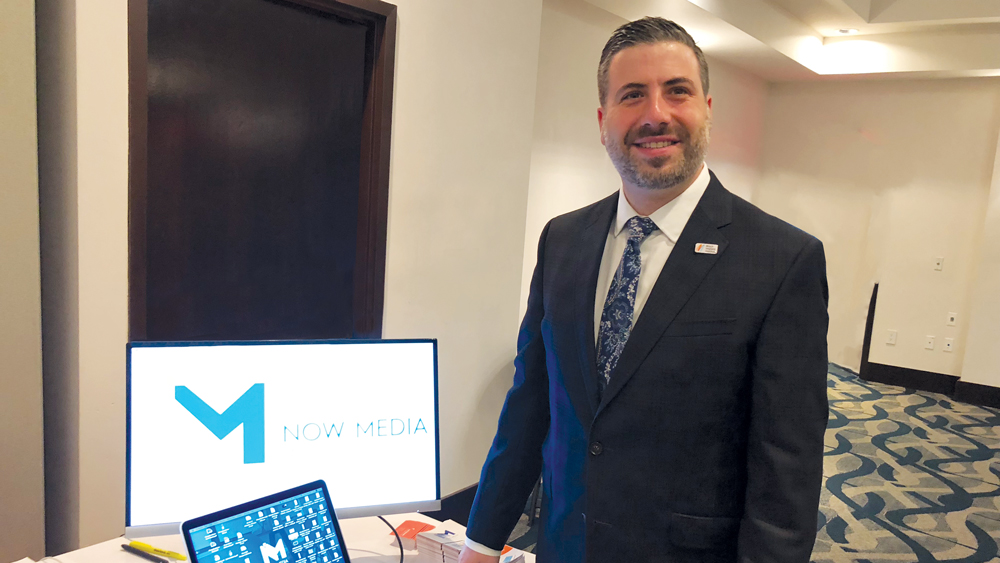
Romano recommends that dental practices maintain an active social media presence.
NP: How does social media fit into that branding?
MR: Well, social media is becoming increasingly popular in marketing and branding. It allows your existing patients to advocate for you by sharing that you’re a great dentist, that they’ve had a pleasant experience and that you were able to help them with their dental issue.
NP: How do you advise your clients to keep an active social media presence?
MR: We run across a lot of practices that haven’t posted in weeks or months because they just don’t have the time, or they haven’t appointed somebody to do it. What’s nice about a firm like mine is that we can go out there and we can put engaging content — things that are relevant to the practice — on your page for you on your behalf. However, we always suggest putting something personal on your Facebook page at least once a week — something that’s happening in the actual practice, like a before-and-after case, a video testimonial, or perhaps a charitable event you participated in or mission that you may have gone on. We want to use social media as a window into the practice to let patients — both prospective and existing — know what’s going on in the office.
NP: For doctors who have a very heavily restorative- and implant-focused practice, they’re often looking for patients who are baby boomers or senior citizens. Is the strategy just as effective for that group as it is for younger groups?
MR: Absolutely. You have these older-generation patients who are active on Facebook for personal reasons — they’re using it to keep in touch with their children or view pictures of their grandkids, and things like that — so they know how to navigate social media.
NP: Do you provide your clients with a strategy to use Yelp and other sites that hold comments and ratings for different businesses?
MR: Yes. We monitor the online reputations of our clients, and we give them tools to get their patients to write positive reviews, because that is extremely important. And, if not-so-great reviews come up, we provide guidance.
NP: How about the whole issue of search engine optimization? Do you provide services to help doctors get their sites to pop up sooner in searches?
MR: We provide rich, engaging original content, which is what the search engines are looking for. We work with our doctors to provide the best chances of getting found and building market share and creating more visibility for these various search terms.
NP: As a boomer myself who has seen many practices be very successful without social media, does social media really matter? Is it worth the dentist’s time and resources to develop this social media presence?
MR: Absolutely. It’s important to take advantage of these free tools that can help you grow your practice. In my opinion it really is a good way to help grow your brand, build market share, and get your information out there.
NP: All great information, Mark. And as I mentioned earlier, I have a lot of colleagues who have had great experiences in growing their practices and acquiring new patients through working with you and Now Media Group. Thanks again for joining us.
MR: My pleasure.

